The following code gives me the wrong output. actually, it is not doing sum, it actually copies the 2nd object to the M3 object instead of calculating the sum. I think I have some logical errors in + operator overloading. Does anybody have any idea or any other suggestion? it displays the output actually which is called in the copy constructor function cout<data[r][c]<<"\t";. but it did not display output when I use M3.displayData(). #include
#include <string.h>
using namespace std;
class Matrix{
private:
int noOfRows;
int noOfColumns;
int **data;
public:
Matrix(int noOfRows, int noOfColumns);
void displayData();
~Matrix();
Matrix (const Matrix &ref);
Matrix operator + (Matrix m);
Matrix& operator=(Matrix m) {
std::swap(m.noOfRows, noOfRows);
std::swap(m.noOfColumns, noOfColumns);
std::swap(m.data, data);
return *this; }
};
Matrix::Matrix(int inr=0, int inc=0){
noOfRows=inr; noOfColumns=inc;
data=new int*[noOfColumns];
for(int i=0;i<noOfRows;i++)
data[i]=new int[noOfColumns];
int d;
for(int r=0;r<noOfRows;r++){
for(int c=0;c<noOfColumns;c++){
cout<<"Enter ...";cin>>d;
data[r][c]=d;
}
cout<<endl;
}
}
Matrix::Matrix (const Matrix &ref){
this->data=new int*[ref.noOfColumns];
for(int i=0;i<ref.noOfRows;i++)
this->data[i]=new int[ref.noOfRows];
for(int r=0;r<ref.noOfRows;r++){
for(int c=0;c<ref.noOfColumns;c++){
this->data[r][c]=ref.data[r][c];
cout<<this->data[r][c]<<"\t";
}
cout<<endl;
}
}
Matrix Matrix::operator + (Matrix m){
Matrix ms(m.noOfRows,m.noOfColumns);
ms=0;
for (int i=0; i<m.noOfRows; i++)
for (int j=0; j<m.noOfColumns; j++){
ms.data[i][j] = data[i][j]+m.data[i][j];
return ms;
}
}
void Matrix::displayData(){
for(int r=0;r<noOfRows;r++){
for(int c=0;c<noOfColumns;c++)
cout<<data[r][c]<<"\t";
cout<<endl;
}
}
Matrix::~Matrix(){
delete[] data;
}
int main(){
Matrix M1(2,2),M2(2,2);
cout<<"\n Matrix A="<<endl;
M1.displayData();
cout<<"\n Matrix B="<<endl;
M2.displayData();
cout<<"\n Sum of Matrix="<<endl;
Matrix M3=M1+M2;
M3.displayData();
return 0;
}
